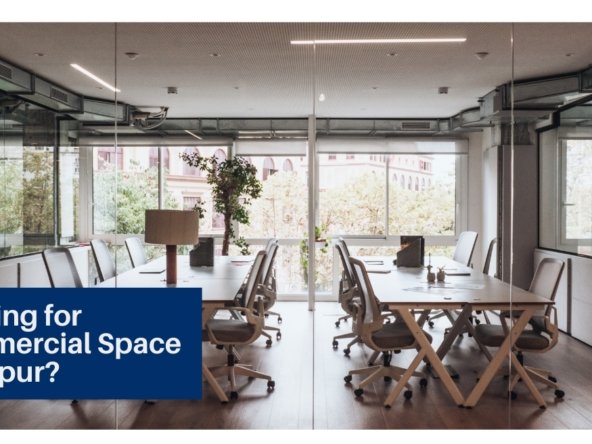Jaipur, the Pink City, has emerged as a growing hub for startups, SMEs, and multinational corporations in recent years. With its strategic location, developing infrastructure, and business-friendly environment, Jaipur offers a lucrative opportunity for companies looking to expand or relocate. However, renting office space in Jaipur requires careful consideration of multiple factors. Choosing the wrong space can affect productivity, employee satisfaction, and operational efficiency. In this article, we explore the essential aspects you must consider before signing a lease.
1. Location and Accessibility
The first and most crucial factor is the office location. It directly impacts client perception and employee convenience. Jaipur offers several business hotspots like C-Scheme, Malviya Nagar, Tonk Road, Vaishali Nagar, and Mansarovar. These areas are not only centrally located but also well-connected through major roads and public transportation.
Before making a decision, assess the daily commute for your employees. Offices near metro stations or bus routes are always a plus. Also, check proximity to banks, eateries, and other essential services. Accessibility is vital for visitors and clients too, so ensure the location has easy navigation and sufficient signage options.
2. Budget and Hidden Costs
Cost plays a decisive role in choosing an office. While Jaipur offers competitive leasing rates compared to metro cities, pricing varies significantly across different areas. It’s important to finalize a budget that aligns with your business goals without stretching your financial limits.
Don’t just look at the base rent. Evaluate maintenance charges, security deposits, utility bills, and parking fees. Some buildings include facilities in the rent, while others charge separately. Always request a detailed breakdown of costs and read the lease agreement thoroughly to avoid hidden fees.
3. Office Space Size and Scalability
Your team size and future growth plans dictate the required square footage. Cramped spaces can hamper productivity and affect employee morale. On the other hand, paying for unused space drains financial resources.
A good rule is to plan for at least 100-150 square feet per employee. Also, consider whether the space allows for future expansion. If your business scales, will the current setup support new hires without needing to relocate? Flexible leasing terms can make scaling easier without long-term commitments.
4. Building Infrastructure and Amenities
Modern businesses need modern infrastructure. Check if the building offers high-speed internet, uninterrupted power supply, and proper air conditioning. The presence of elevators, clean restrooms, conference rooms, and common areas also adds value to the space.
Inquire about security arrangements, including CCTV surveillance, security personnel, and controlled access systems. Ample parking space for both employees and visitors is a major advantage. Buildings with cafeterias, recreational zones, and lounge areas further enhance employee satisfaction.
5. Legal Compliance and Lease Terms
Many business owners overlook the legal aspect of leasing. Ensure the landlord has clear ownership and the authority to lease the property. The lease should be legally vetted, stating rent amount, payment terms, lock-in period, notice period, and renewal clauses.
Always ask for property documents and verify them with a legal advisor. If you’re leasing a commercial property, check if it has the necessary zoning clearance. Avoid properties that might later face legal challenges or demolition orders.
6. Office Design and Customization Options
Your workspace should reflect your brand’s personality. Some landlords offer fully-furnished spaces, while others give bare shells. Decide what suits your needs better. If you prefer customizing the layout, ensure the landlord allows renovations and modifications.
A well-designed office boosts creativity, collaboration, and employee retention. Think about lighting, ventilation, noise control, and workspace ergonomics. Natural light and open layouts tend to increase productivity and reduce stress levels.
7. Surrounding Environment and Safety
A good office isn’t just about interiors. The neighborhood plays a big role in defining work culture. Choose an area with a professional vibe, low noise levels, and low crime rates. The presence of other businesses, especially from similar industries, can also be beneficial for networking and partnerships.
Safety measures in and around the building should meet modern standards. Proper fire safety, emergency exits, and earthquake-resistant construction are important for employee safety and peace of mind.
8. Technology and Connectivity
Today’s work depends heavily on technology. Ensure the office is in an area with strong mobile network coverage and fiber-optic internet availability. Ask about data backup options, server room availability, and IT support services in the building.
Tech-enabled offices often come with automated lighting, biometric access, and digital conference tools. These features can improve workflow and reduce operational hassles.
9. Flexibility in Lease Terms
Avoid rigid leases unless you’re fully confident about long-term requirements. Flexible lease agreements with options to scale up, downsize, or exit with minimal penalties are ideal. Some buildings offer co-working or shared office solutions, which are perfect for startups and small teams.
Short-term leases also allow businesses to test a location before committing long-term. If your business nature is seasonal or project-based, such flexibility becomes a strategic advantage.
10. Reputation of the Landlord or Property Manager
A good landlord can make your experience seamless, while a bad one can be a nightmare. Research the landlord’s or property manager’s track record. Check reviews, ask current tenants, and visit other properties managed by them.
A responsible landlord ensures timely maintenance, respects lease terms, and resolves issues quickly. Building a professional relationship with them can lead to smoother operations and even better deals in the future.
Conclusion
Choosing the right office space in Jaipur is a decision that goes beyond rent and square footage. It involves careful analysis of location, infrastructure, legalities, and future needs. A thoughtfully chosen office not only supports business growth but also improves employee satisfaction and brand reputation. Always take the time to inspect multiple properties, negotiate smartly, and consult legal or real estate experts if necessary.
With proper planning and due diligence, your business can thrive in one of India’s most promising commercial landscapes—Jaipur.



